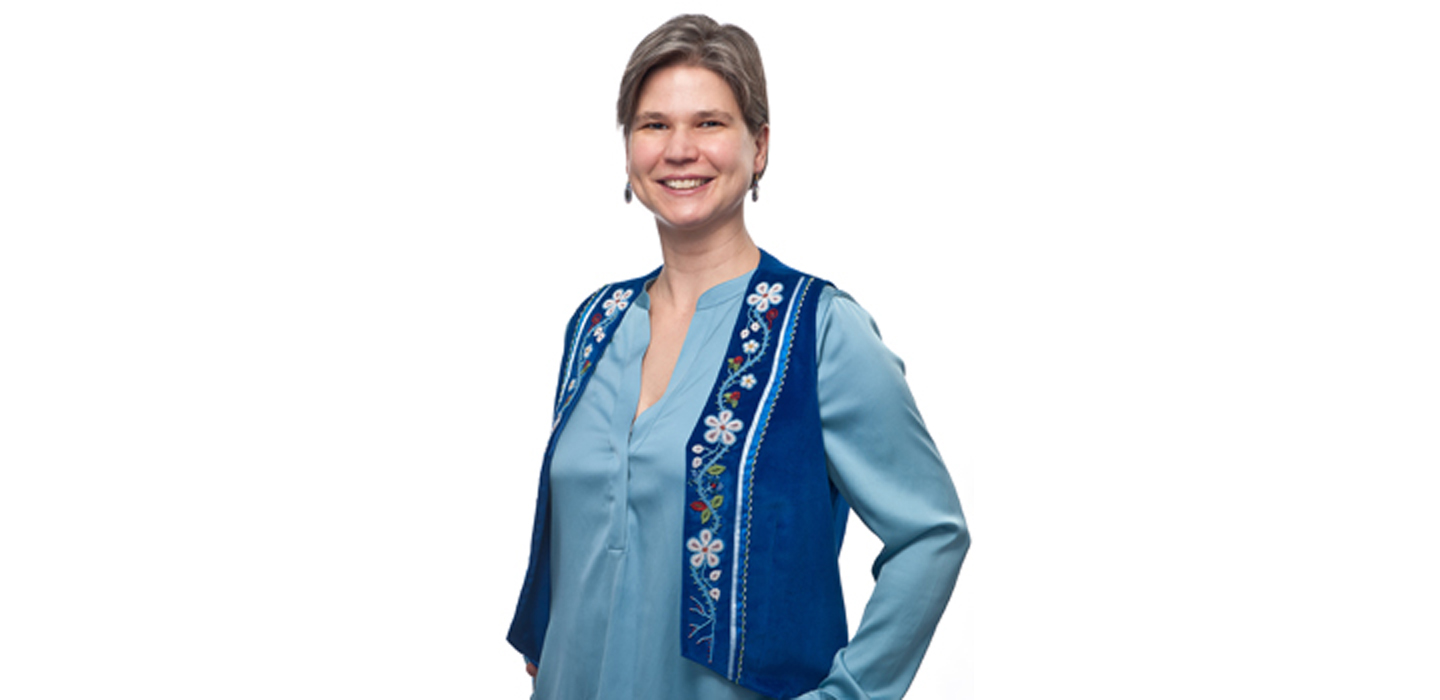
By Leslie Shepherd
The Slaight Family Foundation said today it would give $1 million to Dr. Janet Smylie, a physician and researcher at St. Michael’s Hospital specializing in Indigenous health issues, to train health-care workers to recognize and overcome racial biases that can create inequities in health-care delivery.
St. Michael’s is one of 15 organizations that will benefit from a $12 million donation by the Slaight Family Foundation to groups working to improve the physical, mental and social well-being of Canada’s Indigenous populations. It is believed to be one of the largest charitable donations ever in Canada aimed at Indigenous communities.
“Sometimes people don’t even know they have biases,” said Dr. Smylie, a scientist with the hospital’s Centre for Urban Health Solutions and one of the first Métis physicians in Canada. “But there is strong scientific evidence showing that we all look at people and decide if they look like us or not, and that as health-care providers, we tend to treat those who look like us better.”
Dr. Smylie was the lead author of the study “First Peoples, Second Class Treatment” released by the Wellesley Institute in 2015 that suggested racism against Indigenous people in the health-care system was “pervasive” and a major factor in substandard health among Indigenous peoples in Canada.
“This is unacceptable to Canadians,” she said. “We believe in equitable access to health care for all.”
Dr. Smylie said the good news is that studies have shown it’s possible to train our brains to stop being unintentionally racist. She gives as an example what she calls the “Janet Smylie Toronto subway exercise.”
“When I’m on the subway I might see a person wearing clothes that are a little worn. My first thought might be that this person is experiencing poverty. Then I challenge myself and say, “Janet, maybe she’s a millionaire and those are just her favourite pair of comfortable, worn-out jeans. That’s stereotype replacement.”
Dr. Smylie’s grant will help answer one of the important calls to action developed by the Truth and Reconciliation Commission: to provide cultural competency training for health- care professionals. Cultural competence is the ability of providers and organizations to effectively deliver health-care services that meet the diverse social, cultural, and linguistic needs of patients, respecting their values and beliefs.
She plans to develop an Indigenous Race Preference Implicit Association Testing tool for people to assess their own levels of racism and a Cultural Competency Training Program to increase knowledge, enhance self-awareness and strengthen the skills of health-care workers who work with Indigenous peoples. The training program will be based on one developed by the B.C. Public Health Service Authority and will be specific to people who work in the health-care field, with a goal of improving access to health services and health outcomes for Indigenous people. Through online modules and with skilled facilitators, participants will learn about terminology, diversity, aspects of colonial history such as Indian residential schools, culture and stereotyping.
Finally, Dr. Smylie wants to recruit 200 health-care workers from clinical departments at St. Michael’s Hospital, including the Department of Family and Community Medicine, to test various interventions: no intervention vs. a full eight-module, 20-hour training program vs. a two-hour training program. She hopes to use trained actors to pose as Indigenous and non-Indigenous patients and compare how they were treated.
Dr. Smylie is also director of the Well Living House, an action research centre for Indigenous infant, child and family health, based at St. Michael’s and co-governed by the hospital and a council of Indigenous grandparents.
The Slaight Family Foundation takes a strategic approach to philanthropy, preferring to fund programs that have a tangible impact on people’s lives and are sustainable and longer term.
In 2013, the foundation donated $50 million to five hospitals in Toronto to support the delivery of advanced healthcare at all stages of life. St. Michael’s was one of those hospitals, receiving $10 million to help renovate and double the size of its Emergency Department, making it a world-class facility that will be known as the Slaight Family Emergency Department.
The ED expansion is part of a larger project to transform St. Michael’s physical plant, which includes construction of a 17-storey patient care tower and renovations to much of the rest of the hospital.
In addition, the hospital’s simulation centre, opened in 2013, is known as the Allan Waters Family Simulation.
About St. Michael’s Hospital
St. Michael’s Hospital provides compassionate care to all who enter its doors. The hospital also provides outstanding medical education to future health care professionals in 27 academic disciplines. Critical care and trauma, heart disease, neurosurgery, diabetes, cancer care, care of the homeless and global health are among the hospital’s recognized areas of expertise. Through the Keenan Research Centre and the Li Ka Shing International Healthcare Education Centre, which make up the Li Ka Shing Knowledge Institute, research and education at St. Michael’s Hospital are recognized and make an impact around the world. Founded in 1892, the hospital is fully affiliated with the University of Toronto.
Media contacts
For more information, please contact:
Leslie Shepherd
Manager, Media Strategy, St. Michael’s Hospital
416-864-6094
shepherdl@smh.ca
